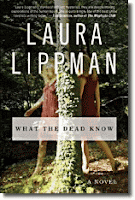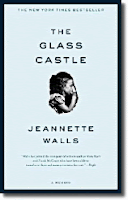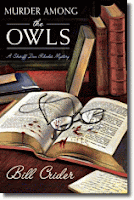 Wyn Cooper
Wyn Cooper has published three books of poems:
The Country of Here Below,
The Way Back, and
Postcards from the Interior, as well as a chapbook,
Secret Address. His poems, stories, essays, and reviews have appeared in
Poetry, Ploughshares, Crazyhorse, Agni, Verse, Fence, and more than 60 other magazines.
In 1993, “Fun,” a poem from his first book, was turned into Sheryl Crow’s Grammy-winning song “All I Wanna Do.”
I recently asked him what he was reading. His reply:
 I am reading Chilly Scenes of Winter by Ann Beattie, and loving every page. Ms. Beattie came to a music gig I was doing in Atlanta last month with the novelist Madison Smartt Bell, I befriended her, and have even gotten her to agree to come to the Brattleboro Literary Festival here in Vermont, which I help run. I have mostly read her stories in The New Yorker over the years, but had never tried one of her six novels. I decided to start with her first one, which takes place in 1975, the year I graduated high school and went away to college. The characters are so real I almost think I'll run into one of them at a nearby bar. The speech patterns of each character are different, just as in the real world. So many fiction writers put the same words in the same order in the mouths of each of their characters ... but not Ann Beattie.
I am reading Chilly Scenes of Winter by Ann Beattie, and loving every page. Ms. Beattie came to a music gig I was doing in Atlanta last month with the novelist Madison Smartt Bell, I befriended her, and have even gotten her to agree to come to the Brattleboro Literary Festival here in Vermont, which I help run. I have mostly read her stories in The New Yorker over the years, but had never tried one of her six novels. I decided to start with her first one, which takes place in 1975, the year I graduated high school and went away to college. The characters are so real I almost think I'll run into one of them at a nearby bar. The speech patterns of each character are different, just as in the real world. So many fiction writers put the same words in the same order in the mouths of each of their characters ... but not Ann Beattie.
I'm also reading The Cosmos Trilogy by Frederick Seidel, one of the more outrageous poets writing these days. He's finally been getting some attention lately, which he may or may not be happy about, as he refuses to give readings and has never been affiliated with any institution except maybe his publisher, FSG. Here is a stanza from his poem "Letter to the Editors of Vogue:"
finally been getting some attention lately, which he may or may not be happy about, as he refuses to give readings and has never been affiliated with any institution except maybe his publisher, FSG. Here is a stanza from his poem "Letter to the Editors of Vogue:"
I am drinking gasoline
To stay awake
In the midst of so much
Murder.
Wyn Cooper's poems are included in 25 anthologies of contemporary poetry, including
The Mercury Reader, Outsiders, and
Ecstatic Occasions, Expedient Forms.
He has also cowritten songs with David Broza, David Baerwald, and Bill Bottrell. In 2003, Gaff Music released
Forty Words for Fear, a cd of songs based on poems and lyrics by Cooper, set to music and sung by the novelist Madison Smartt Bell. It has been featured on NPR’s Weekend Edition and World Café, and has been written about in
Esquire, The New York Times Magazine, The New York Observer, and elsewhere. Songs from the cd have been featured on 4 tv shows.
The 6th annual
Brattleboro Literary Festival will take place September 28-30, 2007. Brattleboro Literary Festival is a three-day celebration of those who read books, those who write books, and of the books themselves. Located in downtown Brattleboro, Vermont, the Festival includes readings, panel discussions, and special events, featuring emerging and established authors. All events are free.
The Page 69 Test: Wyn Cooper's Postcards from the Interior.
--Marshal Zeringue
 Claire Zulkey edits the blog Zulkey.com, where she often runs interviews.
Claire Zulkey edits the blog Zulkey.com, where she often runs interviews.I've been a starter and stopper a lot lately when it comes to books and I'm ashamed of it. I have a good excuse, though -- I'm working on my thesis for grad school so simply don't have time to read that much. Most often these days you'll catch me reading The New Yorker, but I'm also slowly making my way through The Noonday Demon: An Atlas of Depression by Andrew Solomon. That too is actually for my thesis, not because mine's about depression but I was curious about the nonfiction/memoir structure that Solomon uses. It's not really a fast read because it's about depression. For about a week I was convinced I was clinically depressed. My mom bought me Joshua Ferris' Then We Came to the End recently for my birthday so I'm looking forward to starting on that sooner or later.





















































